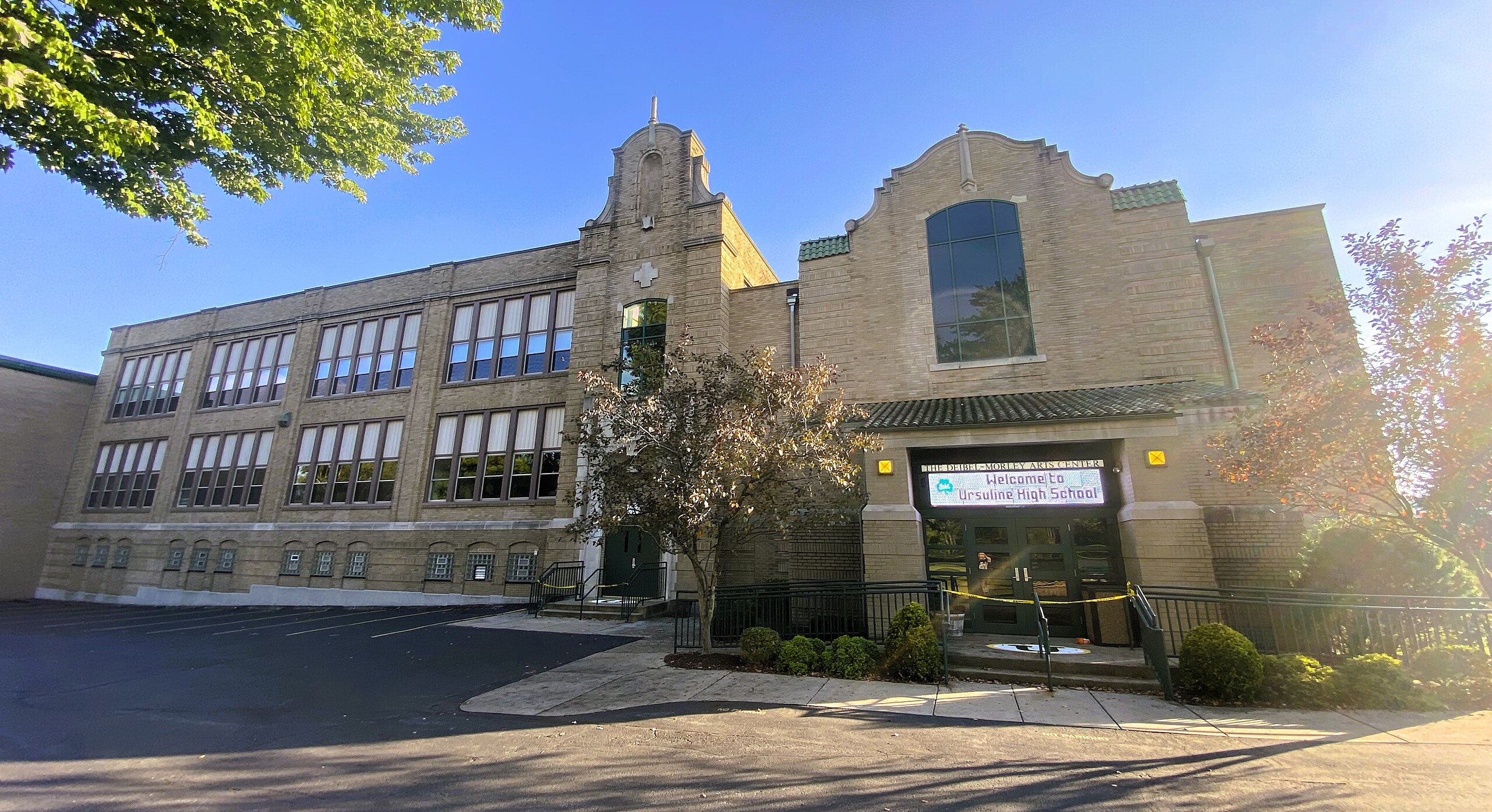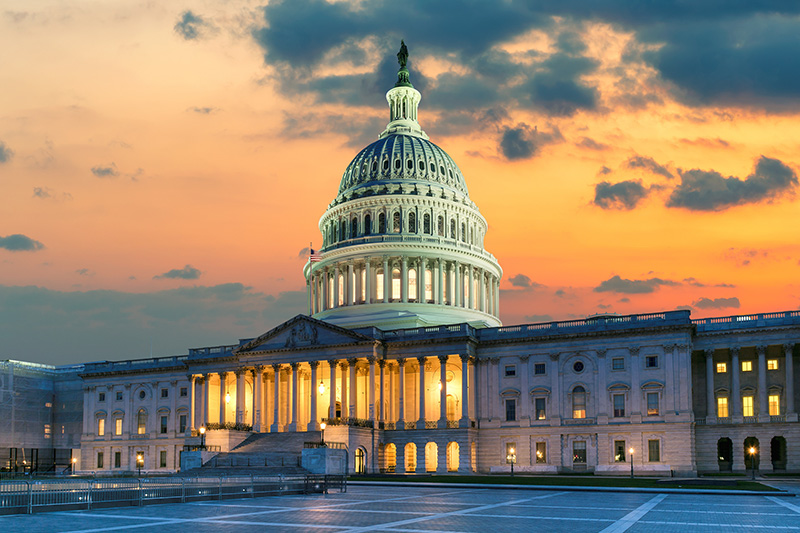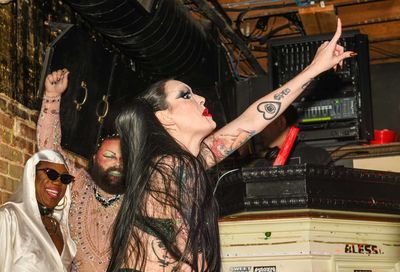Federal court affirms “the needs, humanity, and decency of transgender students”
3rd Circuit court finds allowing transgender students to use single-sex facilities does not violate cisgender students' privacy

The 3rd U.S. Circuit Court of Appeals has elaborated on why it last month rejected a lawsuit seeking to overturn a Pennsylvania school district’s policy allowing transgender students to use facilities that match their gender identity.
Judge Theodore McKee wrote for the court that the school had crafted a policy that respected “the needs, humanity, and decency of transgender students,” and rejected common right-wing arguments against allowing transgender people to use restrooms that match their gender identity.
The initial lawsuit was spearheaded by a group of anonymous students, headed by “Joel Doe” and their parents, and backed by several conservative interest groups. They sued the Boyertown Area School District over its pro-transgender policy, claiming that forcing cisgender students to share spaces with transgender students violates cisgender students’ right to privacy and constitutes a form of “sexual harassment.”
After a district court ruled against them, they appealed to the 3rd Circuit, which rejected the appeal within moments of completing oral arguments, allowing the pro-transgender policy to remain in place.
In its decision, the court notably became the first federal court of appeals to use the word “cisgender,” as it embraced the overall idea that people can have a gender identity that does not match their biological sex at birth.
In their briefs and oral arguments, lawyers for the cisgender students had attempted to misgender transgender children in order to confuse the court and invoke fear over the idea of sharing public facilities with transgender people. But the court saw through the tactic, even noting how having their true gender identity ignored can cause significant harm to transgender children.
“[Boyertown] has carefully crafted a policy that attempts to address the concerns that some cisgender students may have,” Judge McKee wrote. “To its credit, it has done so in a way that recognizes those concerns as well as the needs, humanity, and decency of transgender students.”
Additionally, the court noted that there is nothing wrong with living one’s life according to their gender identity, including using facilities that match that identity. In doing so, it rejected the argument that sharing spaces with transgender children is a violation of cisgender students’ privacy.
“Cases about strip searches and a criminal conviction for voyeurism after a person repeatedly looked at women in the stalls of public restrooms are wholly unhelpful to our analysis,” McKee added. “Those cases involve inappropriate conduct as well as conduct that intruded into far more ‘intimate aspects of human affairs’ than here.
“There is simply nothing inappropriate about transgender students using the restrooms or locker rooms that correspond to their gender identity under the policy [Boyertown] has initiated, and we reject appellants’ attempt to argue that there is…. We have already explained that the presence of transgender students in these spaces does not offend the constitutional right of privacy any more than the presence of cisgender students in those spaces.”
Lastly, the court rejected the plaintiffs’ argument that the district’s policy violated Title IX, noting that the district already allows any student — regardless of gender identity — to change in gender-neutral stalls, single-user bathrooms, or other facilities if they feel uncomfortable.
“Title IX prohibits discrimination based on sex in all educational programs that receive funds from the federal government. However, discrimination with regard to privacy facilities is exempt from that blanket prohibition,” the court wrote. “An institution ‘may provide separate toilet, locker room, and shower facilities on the basis of sex, but such facilities provided for students of one sex shall be comparable to such facilities provided for students of the other sex.’ This exception is permissive — Title IX does not require that an institution provide separate privacy facilities for the sexes.”
McKee did not explicitly embrace the concept that Title IX’s prohibitions on sex-based discrimination protects transgender students, but did note that the arguments put forth by Boyertown Area School District could be very convincing to draw such a conclusion.
“The School District…contends that barring transgender students from using privacy facilities that align with their gender identity would, itself, constitute discrimination under a sex-stereotyping theory in violation of Title IX. We need not decide that very different issue here,” McKee wrote. “We note only that the School District’s argument finds support in the very persuasive opinion from the Seventh Circuit in Whitaker, and the analysis there supports the District Court’s conclusion that appellants were not likely to succeed on the merits of their Title IX claim.”
But most importantly, the 3rd Circuit found that the district court had ruled correctly, and that forcing transgender students to use separate facilities from the rest of their peers “would very publicly brand all transgender students with a scarlet ‘T,’ and they should not have to endure that as the price of attending their public school.”
Support Metro Weekly’s Journalism
These are challenging times for news organizations. And yet it’s crucial we stay active and provide vital resources and information to both our local readers and the world. So won’t you please take a moment and consider supporting Metro Weekly with a membership? For as little as $5 a month, you can help ensure Metro Weekly magazine and MetroWeekly.com remain free, viable resources as we provide the best, most diverse, culturally-resonant LGBTQ coverage in both the D.C. region and around the world. Memberships come with exclusive perks and discounts, your own personal digital delivery of each week’s magazine (and an archive), access to our Member's Lounge when it launches this fall, and exclusive members-only items like Metro Weekly Membership Mugs and Tote Bags! Check out all our membership levels here and please join us today!




























You must be logged in to post a comment.